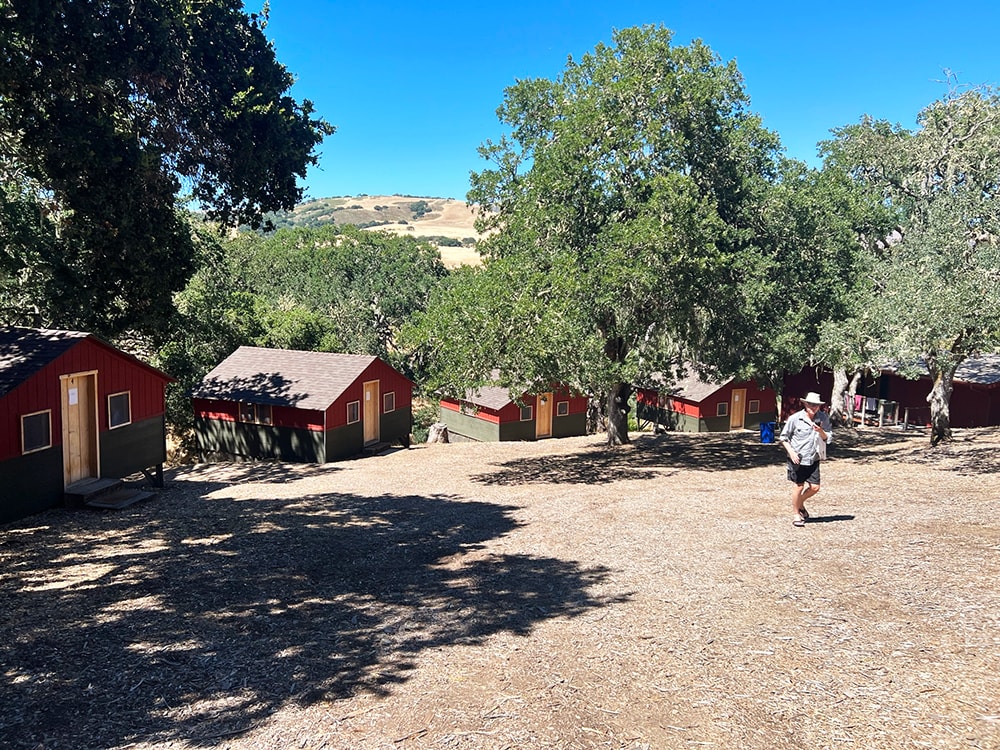All About Camp 2025
LODGING | PRICE | SCHEDULE | FAQ
CCMC’s main event is the annual camp in July—two independent week-long sessions. You can register for either or both sessions. Both weeks have classes for students of all levels, in a variety of styles and for a variety of acoustic instruments. (For information about other CCMC activities, see Year-Round Events.)
2025 dates:
Week 1: July 12–18
Week 2: July 19-25
Lodging in 2025
These are the options:
- A cabin with up to 3 people. All cabins have electricity. Each cabin has 1 queen bed and 2 twin beds.
- Your own tent (limited space).
- Your own small RV (spots are limited). RVs must be a maximum of 21 feet long; there are no hookups.
- A bed in a house with a common-area living room and kitchen (very limited number; these are not private rooms).
Bath houses with toilets and showers are a short walk for anyone in a cabin, tent, or RV.
When you register, choose your top two lodging choices. We will contact you with your lodging assignment before camp.

Price
For 2025, the base price of camp is $1500 per person per session. This price includes all meals and either a bed in a cabin with a total of 3 people, a tent, or an RV.
If you request and are assigned one of the following options, there is a surcharge:
- A bed in one of the houses ($500 extra).
- A cabin by yourself ($500) or with only one other person ($250 per person).
You’ll be notified of your housing assignment approximately two weeks before the start of each session. If you owe a surcharge, you’ll pay it at that time.
Sample Schedule
| 8:00–8:45 a.m. | Breakfast |
| 9:00–10:15 a.m. | First class |
| 10:35–11:50 a.m. | Second class |
| 12:10–12:50 p.m. | Lunch |
| 1:05–2:20 p.m. | Third class |
| 4:00–5:00 p.m. | Workshops |
| 6:00–6:45 p.m. | Dinner |
| 7:30 p.m. | Evening activity |
Scholarships are available—see Scholarships.
